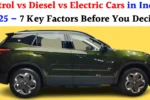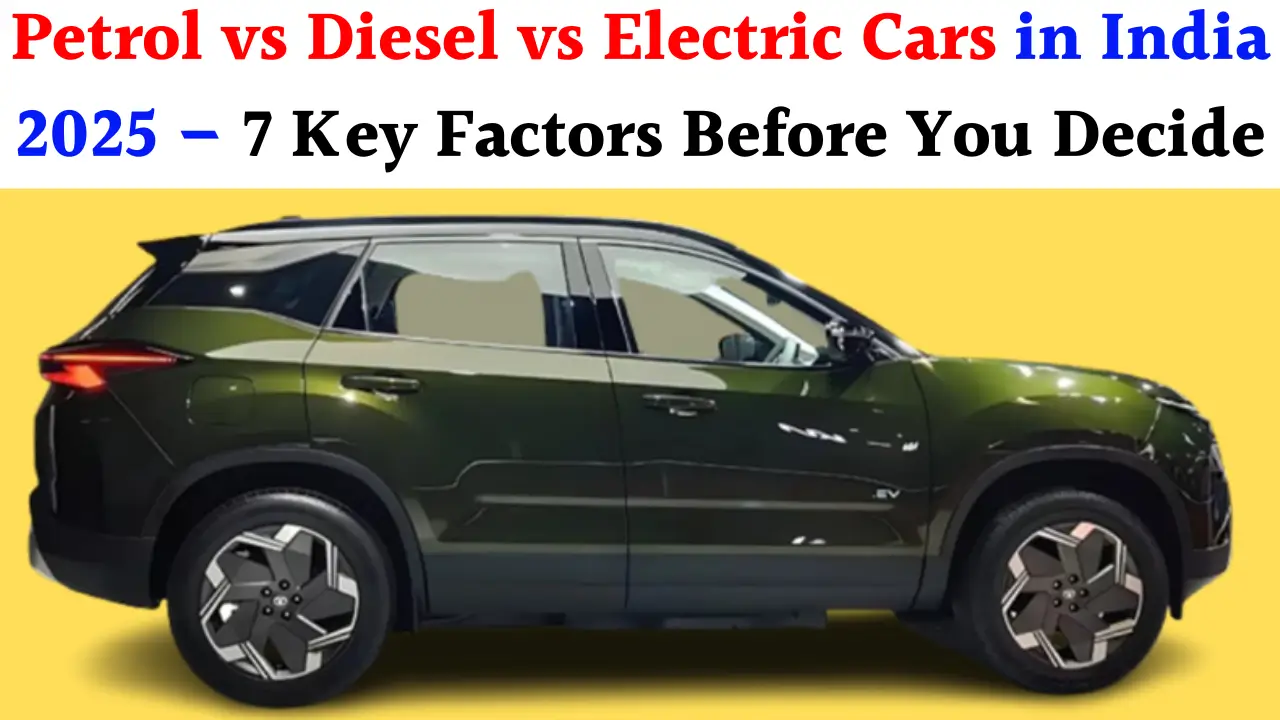BYD predicts a mass shutdown of car manufacturers in the world’s largest auto market: The Chinese electric vehicle giant has issued a major warning that could reshape the global automotive industry. With China being the world’s largest car market, BYD’s forecast has sent ripples across both domestic and international manufacturers. As competition intensifies, weak players may be forced to collapse under rising costs, stricter regulations, and the unstoppable shift toward new-energy vehicles (NEVs).
China’s Auto Market at a Crossroads
China has grown into the biggest car market globally, accounting for more than one-third of all automobile sales. The country is also home to the fastest EV adoption rate, supported aggressively by government subsidies, infrastructure developments, and consumer demand for eco-friendly solutions.
However, this rapid growth has also created a situation where the number of producers far exceeds demand. With over 100 brands competing in the EV sector alone, BYD’s leadership has argued that oversaturation will inevitably lead to mass closures.
Their prediction highlights a key tension: while innovation and competition have driven prices down and quality up, the pace at which small and mid-level manufacturers can keep up with giants like BYD, Tesla, and SAIC is dwindling.
BYD’s Rise to Dominance
BYD, headquartered in Shenzhen, has evolved into China’s most powerful EV manufacturer. Known for its affordable yet technologically advanced electric cars, BYD has surpassed Tesla multiple times in global sales volume. In particular, its diversified product line—from small city cars to luxury brands—shows the company’s ability to adapt to all consumer segments.
The company’s dominance is driven by:
- Large-scale vertical integration of battery technology.
- Competitive pricing fuelled by cost-efficient mass production.
- Strong backing from Chinese policies promoting electrification.
By 2025, BYD’s aggressive scaling strategy has made it not only China’s top EV maker, but also one of the most influential players internationally. It is this strong position that enables BYD to foresee the struggles of weaker competitors and issue its stark warning.
Why Mass Shutdowns Could Happen
The auto industry in China is heading toward consolidation. Similar to the fate of early internet companies and smartphone manufacturers, only the strongest players are likely to survive.
Key Reasons Behind the Predicted Shutdowns:
- Oversupply and Market Fragmentation
The EV market is overcrowded with brands offering similar models at competitive prices. This fragmentation leads to heavy losses for small automakers. - Economic Pressures
Declining subsidies, stricter emission standards, and raw material price fluctuations are hurting profit margins. - Consumer Shift Towards Established Brands
Buyers are becoming more selective, often preferring recognised names such as BYD, Tesla, and Geely for assurance of reliability and long-term service support. - Technological Gaps
Firms that cannot invest in battery innovation, autonomous driving technologies, and digital systems are lagging behind.
Table: Status of Key Chinese Auto Brands in 2025
| Manufacturer | Market Position | Strengths | Weaknesses | Survival Outlook |
|---|---|---|---|---|
| BYD | Market Leader | Strong battery tech, diverse line-up, global expansion | High competition in exports | Strong |
| Tesla (China) | Premium Segment | Strong global brand, technological edge | Local price wars | Strong |
| SAIC Motor | State-owned, mass market | Scale, JV with VW and GM | Overreliance on partnerships | Moderate |
| NIO | Premium EV player | Battery-swap tech, loyal customer base | High operational costs | Moderate |
| XPeng | Tech-focused EV | Strong software, autonomous driving R&D | Limited scale vs BYD | Weakening |
| Li Auto | Hybrid + EV | Extended range vehicles, good sales growth | Slower tech adoption | Moderate |
| Smaller Start-ups | Niche EVs | Innovation in design | Lack of scale, funding | Weak |
Global Impact of a Reshaping Chinese Market
China’s market directly influences global trends due to its size and role as a manufacturing hub. If dozens of car manufacturers collapse, it will send shockwaves across supply chains, raw material pricing, and foreign joint ventures.
- For Europe and the UK: Chinese EV exports are already gaining traction. Market consolidation could lead to stronger exports from surviving giants, affecting European automakers like Volkswagen and Renault.
- For the USA: While tariff disputes continue, the survival of strong Chinese EV companies could push further competition with Tesla in global export markets.
- For Africa: Cheap, reliable electric imports from China could shape the continent’s mobility future, provided only the strongest players remain.
China’s Government Role in Survival
The Chinese government has played a decisive role in shaping the automobile market through subsidies, tax cuts, and infrastructure investments. However, policies are changing to enhance quality rather than quantity. Instead of supporting every small EV maker, the government is focusing on aiding scale-ups with international competitiveness.
This shift is likely to accelerate industry consolidation. Smaller firms might either merge with bigger players or exit the market altogether.
What Consumers Can Expect
For consumers in China, the consolidation of EV makers could mean:
- Better reliability from established surviving brands.
- Slower price wars as competition thins out.
- Increased innovation in technology, safety, and design.
- Limited availability of niche EV brands.
International consumers too may benefit, as exports from leaders like BYD could continue expanding, pushing global EV adoption at affordable prices.
FAQs
Q1. Why does BYD predict mass shutdowns in China’s auto industry?
BYD believes oversupply, rising competition, and economic pressures will make it impossible for many small manufacturers to survive.
Q2. Which manufacturers are most at risk of collapse?
Smaller start-ups and companies without strong technology, large-scale production, or state backing are most vulnerable.
Q3. How will this affect global car markets?
Stronger Chinese brands will expand aggressively overseas, challenging Western and Asian manufacturers in exports.
Q4. Will car prices in China go up if many firms shut down?
Yes, prices may stabilise or increase slightly as brand competition decreases, although major firms will keep costs competitive.
Q5. What role does the Chinese government play in this situation?
The government is shifting support from quantity to quality, favouring large, internationally competitive firms over small automakers.






